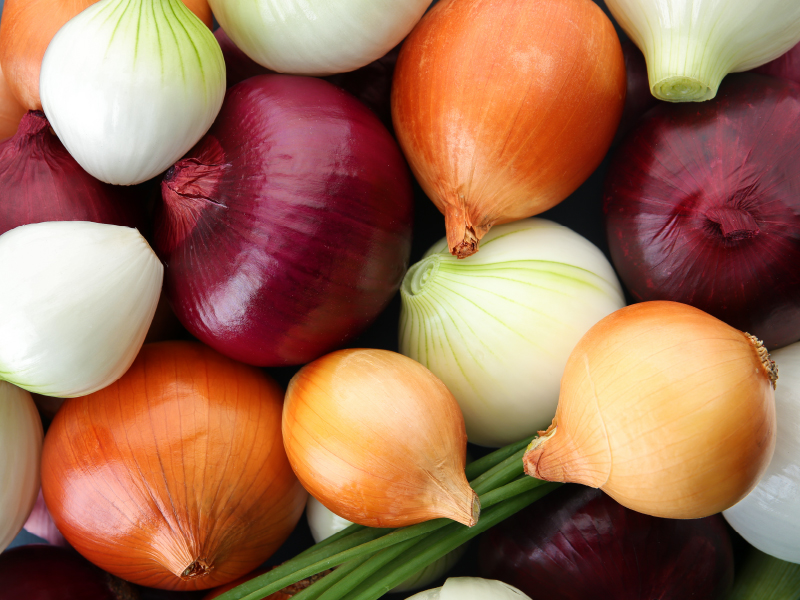
Now in its fourth year, the focus of this project is helping and supporting growers to adopt integrated pest management (IPM), minimising over-reliance on pesticides.
The challenge
To improve pest management in the onion industry through cultural, biological and chemical means, while also reducing associated costs.
Meet Shane
As an onion grower, Shane Ebert is well aware of the danger posed to his farm by thrips – a common pest that can do major damage to onion crops. For years, thrips were well-controlled with routine insecticides. However, in recent years, Shane is seeing far less effect from traditional insecticide treatments, and he has been interested to see if there was another way.
So, Shane attended an Integrated Pest Management workshop. What he saw was enough to convince him to set up his own trial, using Integrated Pest Management techniques. In line with recommendations, Shane added organic matter on the soil surface as mulch to encourage beneficial insects and mites. Pleased with the results, Shane set about successfully mechanising the process and now uses the improved method over all their onions.
“We are very happy with the results from the commercial areas treated last season,” says Shane. “We will continue to use this method into the foreseeable future”. The methods of controlling thrips on Shane’s South Australian farm have changed completely. Instead of a regular insecticide application, there are now little to no insecticides applied for the pest, making onion production on the farm more sustainable.
The approach
In a bid to increase the adoption of IPM across the industry, this project is undertaking a range of activities, including workshops, demonstration sites with commercial crops, and the production of materials, such as articles, guides and case studies distributed in industry channels.
The project is also responsible for training advisors from Australia’s major onion and potato growing regions in IPM. The additional threat of tomato potato psyllid has also resulted in additional funding from the potato growing and processing industries for activities specifically related to that pest.
While COVID-19 restrictions on travel and in-person meetings have meant some workshops and field visits were and are postponed, the team plans to resume these activities as soon as possible with the aim of completing the project on schedule.
The impact
The project team has continued to increase the adoption of IPM in onion crops across southern Australia, primarily throughout South Australia, Victoria, and Tasmania. Support and advice have been provided to farmers and agronomists, particularly around insect identification and insecticide selection.
With pests at their peak during the warmer summer months, on-farm work during this time has focused on demonstrating decision-making in an IPM context, with training continued using video meetings when necessary. All demonstration sites continue to be in commercial crops and include seed, processing, and fresh market crops.
In addition to assisting farmers directly, the team also trained field officers from major processors (McCain, Snackbrands and Simplot), major reseller agronomy companies (IK Caldwell, Elders, Landmark, E.E. Muir and Sons, Serve-Ag, Roberts, CRT, Farmer Johns) and independent advisors, supporting IPM as a mainstream approach to pest control.
Resulting from its involvement with the project in potatoes, Simplot Australia decided to implement an IPM approach across all the company’s crops, including potatoes, onions, broccoli, and sweetcorn.
The team’s work has generated international interest, with invitations to participate in publications and conferences to share IPM expertise.
Please note that this article first appeared in the 2019 Onions Australia magazine.
